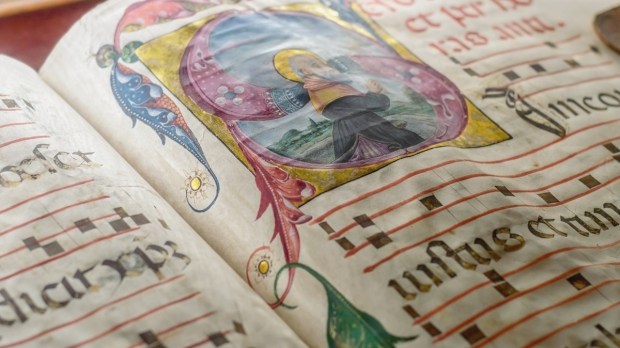Starting in about the 8th century, the Church has included in her liturgy what have become known as the “O Antiphons” or the “Great Antiphons.” They consist of verses recited or sung during Vespers (Evening Prayer) on the final days before Christmas, starting on December 17.
Each of these antiphons refers to a different title of Jesus that is found in the Old Testament. Here are the seven that are still in use today.
O Sapientia — O Wisdom
O Adonai — O Lord
O Radix Jesse — O Root of Jesse
O Clavis David — O Key of David
O Oriens — O Dayspring
O Rex Gentium — O King of the Nations
O Emmanuel — O God with Us
However, historically there has been some variety in certain places, as Dom Prosper Guéranger explains in his Liturgical Year:
In other Churches during the Middle Ages two more were added to these seven; one to our Blessed Lady, O Virgo Virginum, and the other to the Angel Gabriel, O Gabriel, or to St. Thomas the Apostle, whose feast comes during the Greater Ferias; it began O Thoma Didyme. There were even Churches where twelve Great Antiphons were sung, that is, besides the nine we have just mentioned. There was O Rex Pacificeto our Lord, O Mundi Domina to our Lady and O Hierusalem, to the city of the people of God.
These additional antiphons are no longer used by the Church, and the number was simplified to the seven antiphons we know best.


